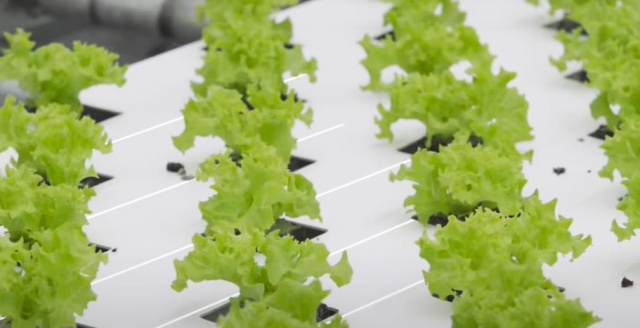The Russian joint team of Rosselkhozbank, MIPT and RGAU-MSHA took second place in the finals of the international agricultural competition Autonomous Greenhouse Challenge, organized by the Netherlands University WUR (Wageningen University & Research), ahead of participants from China, South Korea and European countries, the press service of Rosselkhozbank reports “.
For the first time, a team from Russia took part in the international agricultural competition Autonomous Greenhouse Challenge: employees of Rosselkhozbank and MIPT began preparations for it 3 months in advance and successfully overcame several qualifying stages in competition with 17 teams (140 participants, 18 countries) from the most famous universities in the world, such like MIT, Stanford, Cornell, UC Davis, TU Munich and the world’s largest corporations (BASF, Tencent). To qualify for the finals, teams were required to place in the top 5 in a two-day hackathon in which teams were asked to grow lettuce in a virtual greenhouse provided by Wageningen University using an advanced digital simulation environment. According to the results of the hackathon, the Russian team took second place and confidently advanced to the final of the competition.
At the final stage, each team was allocated a greenhouse section at Wageningen University’s research center in Bleiswijk to grow a high-quality lettuce crop using energy, water and other resources in a sustainable manner. The uniqueness of the task was that the entire process, up to the moment of harvesting, had to function completely without human intervention, that is, it was automated using its own artificial intelligence algorithms.
The final of the competition consisted of two stages (each lasting 2 months), during which the Russian team confidently kept among the top three teams. According to the results of the competition, the team from Russia took 2nd place, losing only to the winner of last year, the team from the USA (Koidra.ai). The Russian model, based on computer vision technologies, reinforcement learning and optimal control of greenhouse systems, managed to grow the crop with the highest revenue among the contestants.
In traditional greenhouse production, it is necessary to regularly adjust the environmental parameters depending on the changing factors that affect the growth of crops. An experienced producer can independently control a limited set of system parameters in small industries, but to meet the growing demand for quality food, it is necessary to develop a new class of fully automated greenhouse complexes based on artificial intelligence technologies. Similar data processing and analysis systems using machine learning and computer vision are being developed and tested at the Autonomous Greenhouse Challenge.
Every year since 2018, the Chinese company Tencent and Wageningen University in the Netherlands have been hosting the international Autonomous Greenhouse Challenge, in which the best artificial intelligence experts from around the world compete in growing crops. The competition is aimed at bringing together experts in the field of IT and agronomy, sharing knowledge and developing digital technologies in agriculture in order to increase the efficiency of agribusiness and ensure the availability of safe food.












